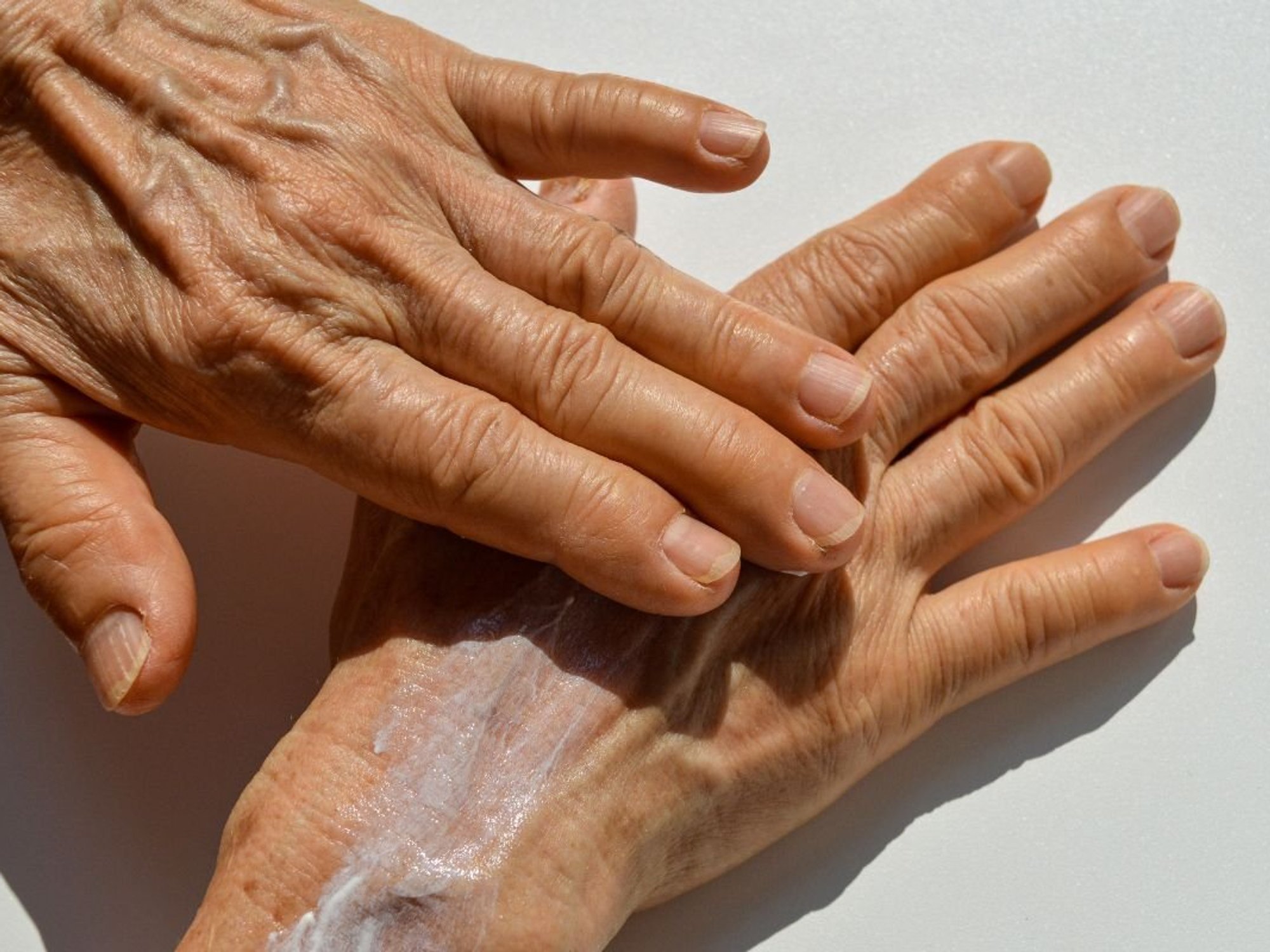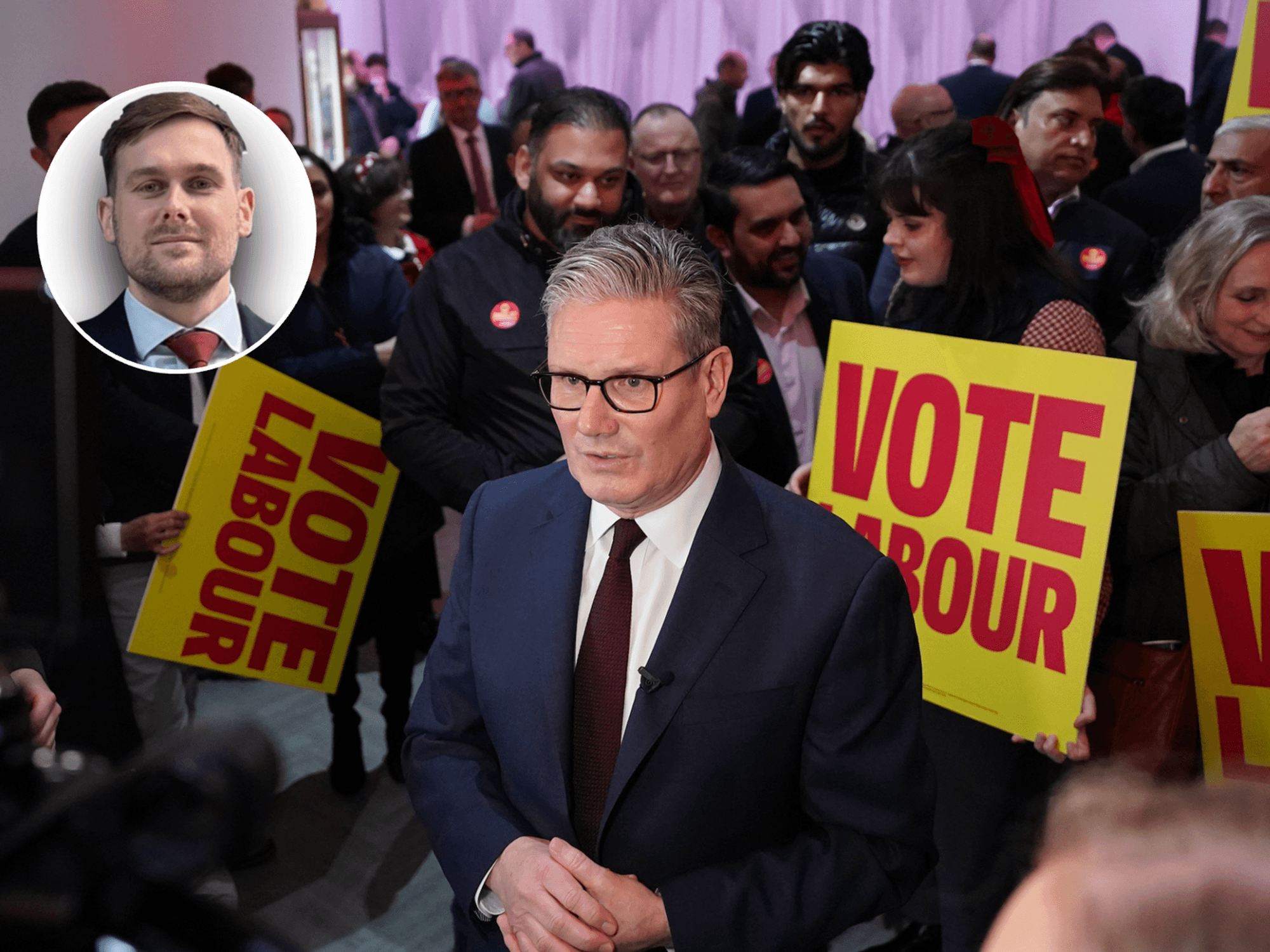Assisted Dying Bill narrowly passes through Commons as UK one step closer to proposal becoming law
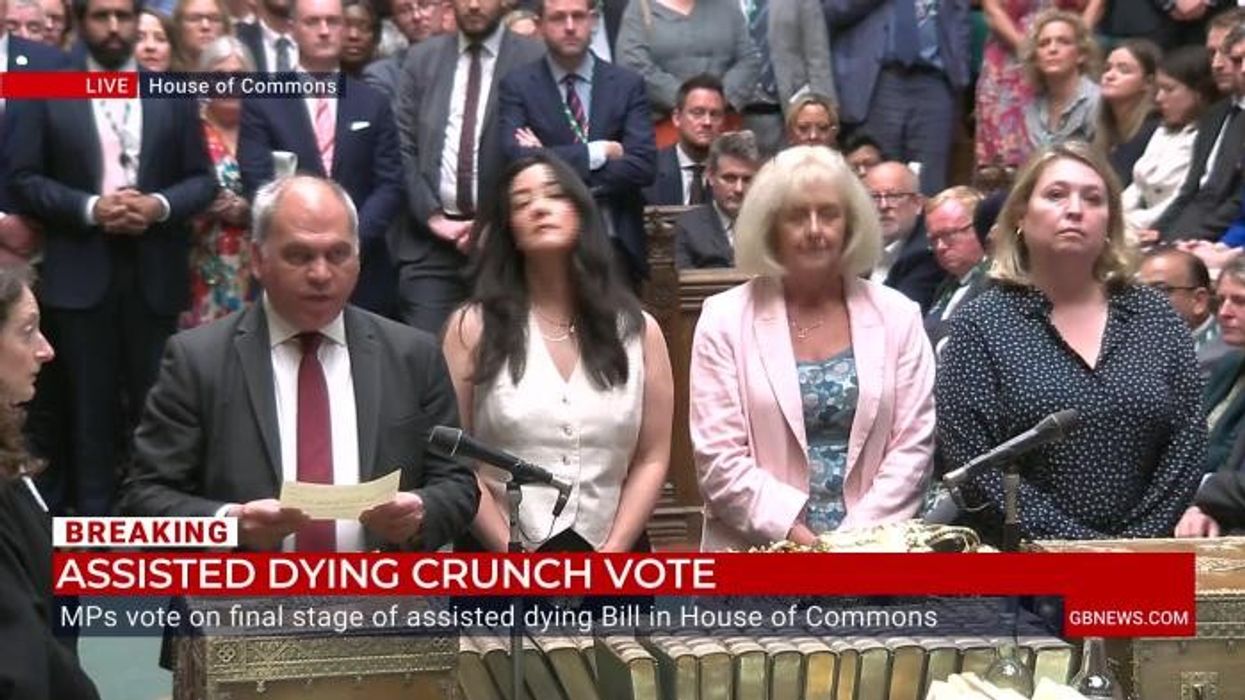
Assisted Dying Bill passes in the House of Commons |
GB NEWS

The Assisted Dying Bill could still face hurdles in the House of Lords
Don't Miss
Most Read
Trending on GB News
MPs have voted for the Assisted Dying Bill in a move that will pave the way for Britons suffering with terminal illnesses to have the right to end their own lives.
The private member's bill, put forward by Labour MP Kim Leadbeater, passed through with a majority of 23 after five hours of debate in the House of Commons.
A total of 314 MPs voted in favour of the proposed legislation, with 291 MPs voting against.
The vote was much closer than the previous ballot held in November, with Reform UK MP Lee Anderson switching his vote to oppose Leadbeater's Bill.
The Assisted Dying Bill was not whipped at any stage of its progression through the House of Commons, leaving Labour split with 226 supporting the legislation and 161 voting against.
Sir Keir Starmer's Cabinet was also divided as the Prime Minister ended up in a different voting lobby to both his deputy Angela Rayner and Health Secretary Wes Streeting.
Despite activists celebrating the historic moment in Westminster, 1,000 doctors had urged MPs to vote against the legislation, calling it a "real threat" to both patients and medics.
However, the landmark legislation still faces several hurdles before it receives royal assent.
LATEST DEVELOPMENTS: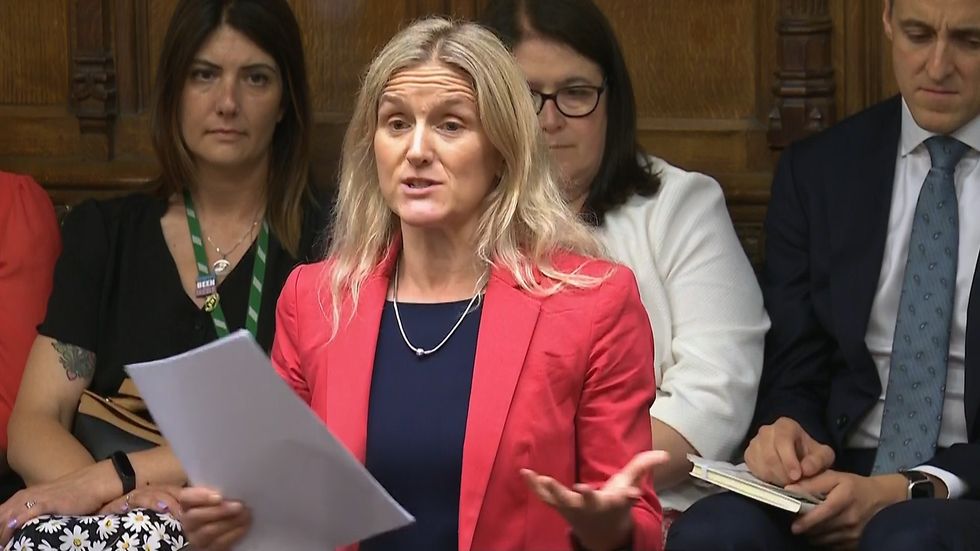
Assisted Dying Bill narrowly passes through Commons as UK one step closer to proposal becoming law
|PA
A number of leading members of the House of Lords have already vowed to try to scupper the legislation.
Tory peer Lord Frost said: “Many of us will now oppose this Bill in the Lords, and entirely legitimately.
“There is no Labour manifesto commitment, and it is an issue of conscience on which there have been free votes throughout. The fight goes on.”
Opponents of Leadbeater's legislation have also pinned their hopes on the House of Lords amending elements of the Assisted Dying Bill.
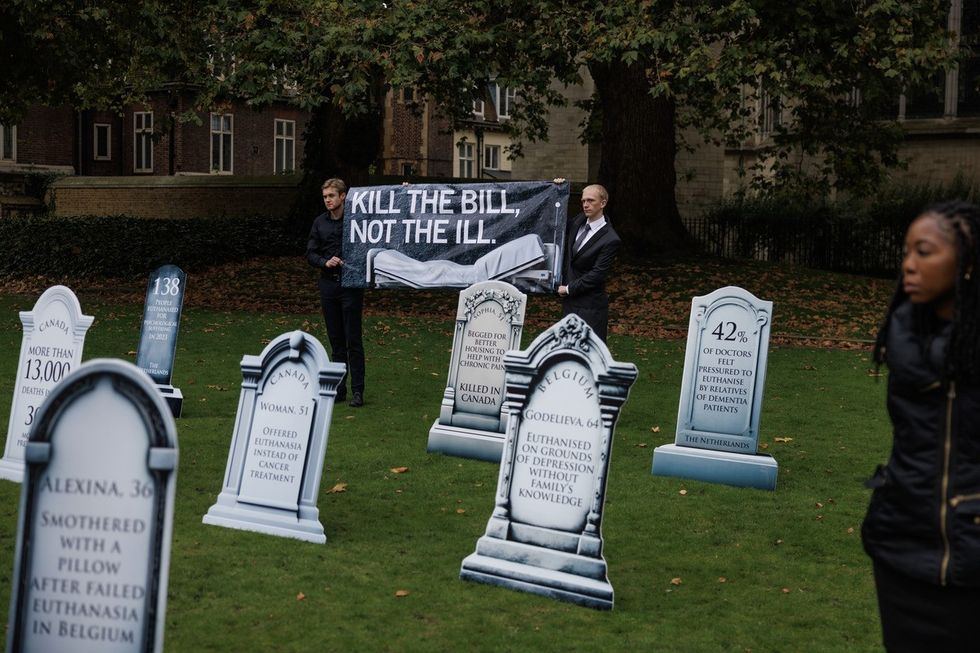 Campaigners near Parliament Square against the proposed bill to legalise assisted dying, | GETTY
Campaigners near Parliament Square against the proposed bill to legalise assisted dying, | GETTYCampaign group Right to Life UK warned: "The Bill still faces an uphill battle to reach royal assent. We will be fighting it at every stage in the House of Lords."
Writing for The Telegraph, former Labour MP Tom Harris also arged: "Unless the Lords can force through radical changes, there will remain deep seated and justifiable fears that terminally ill people will face irresistible pressure from members of their own family to 'do the decent thing' and spare everyone even more misery."
Harris added: "It’s now over to our unelected, undemocratic House of Lords to do the job that we can no longer expect the Commons to do."
However, the campaign group Dignity in Dying hailed the result as a "landmark moment for choice, compassion and dignity at the end of life".
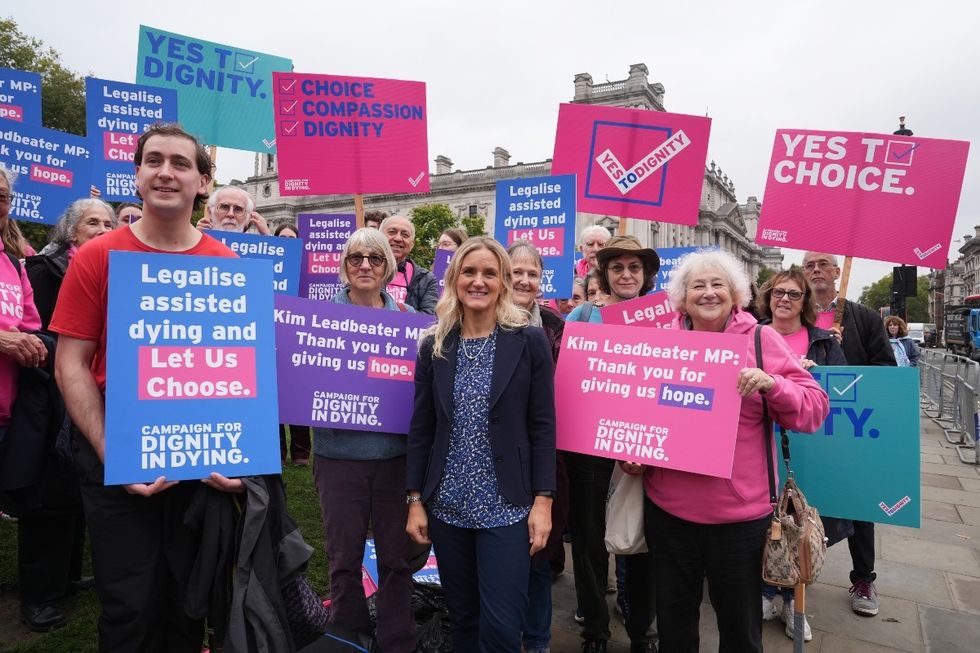 Protesters gather to support assisted dying | PA
Protesters gather to support assisted dying | PA"MPs have listened to dying people, to bereaved families and to the public, and have voted decisively for the reform that our country needs and deserves," said its chief executive Sarah Wootton said.
The Assisted Dying Bill, in its current form, would allow adults with fewer than six months to live to apply for an assisted death, subject to approval by two doctors and a panel featuring a social worker, senior legal figure and psychiatrist.
MPs had already made a number of amendments to the legislation, including replacing the need for a High Court judge's approval with an expert panel.
After MPs voted in favour of her private member's bill, Leadbeater wrote in The Guardian: "I am relieved and overjoyed by the historic vote on assisted dying in England and Wales in the House of Commons today.
"The road has been long and hard, and I am very aware that many others have been on that journey since long before I even became an MP."
However, Shadow Justice Secretary Robert Jenrick opened up on a personal story in a stern warning about today's vote.
Speaking to GB News, Jenrick explained that his grandmother was, "diagnosed with a terminal illness, was given just a short while to live, and then ended up being with us for nine years afterwards.
An opinion poll conducted by YouGov ahead of today's vote suggested that 73 per cent of Britons were supportive of the bill, with the proportion of those in favour in principle jumping to 75 per cent.
More From GB News





